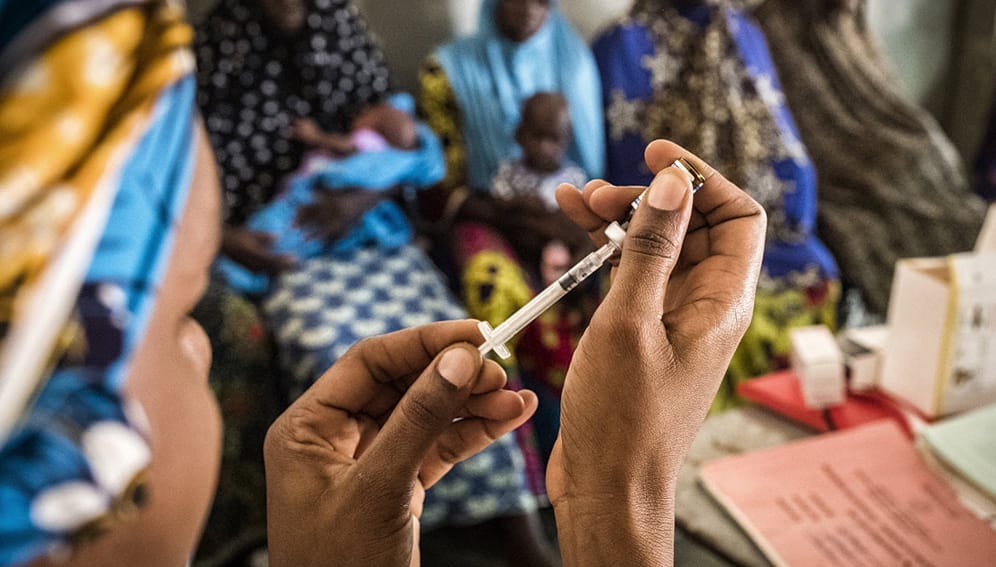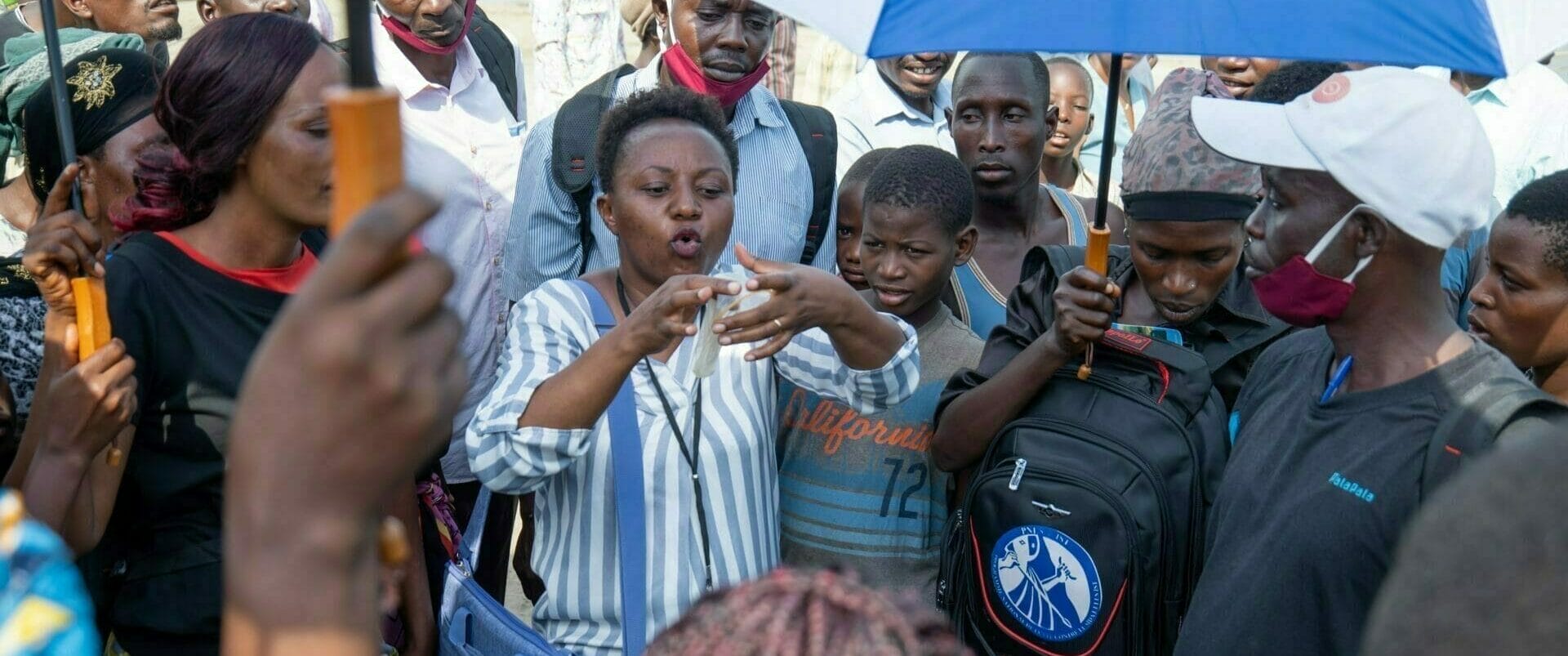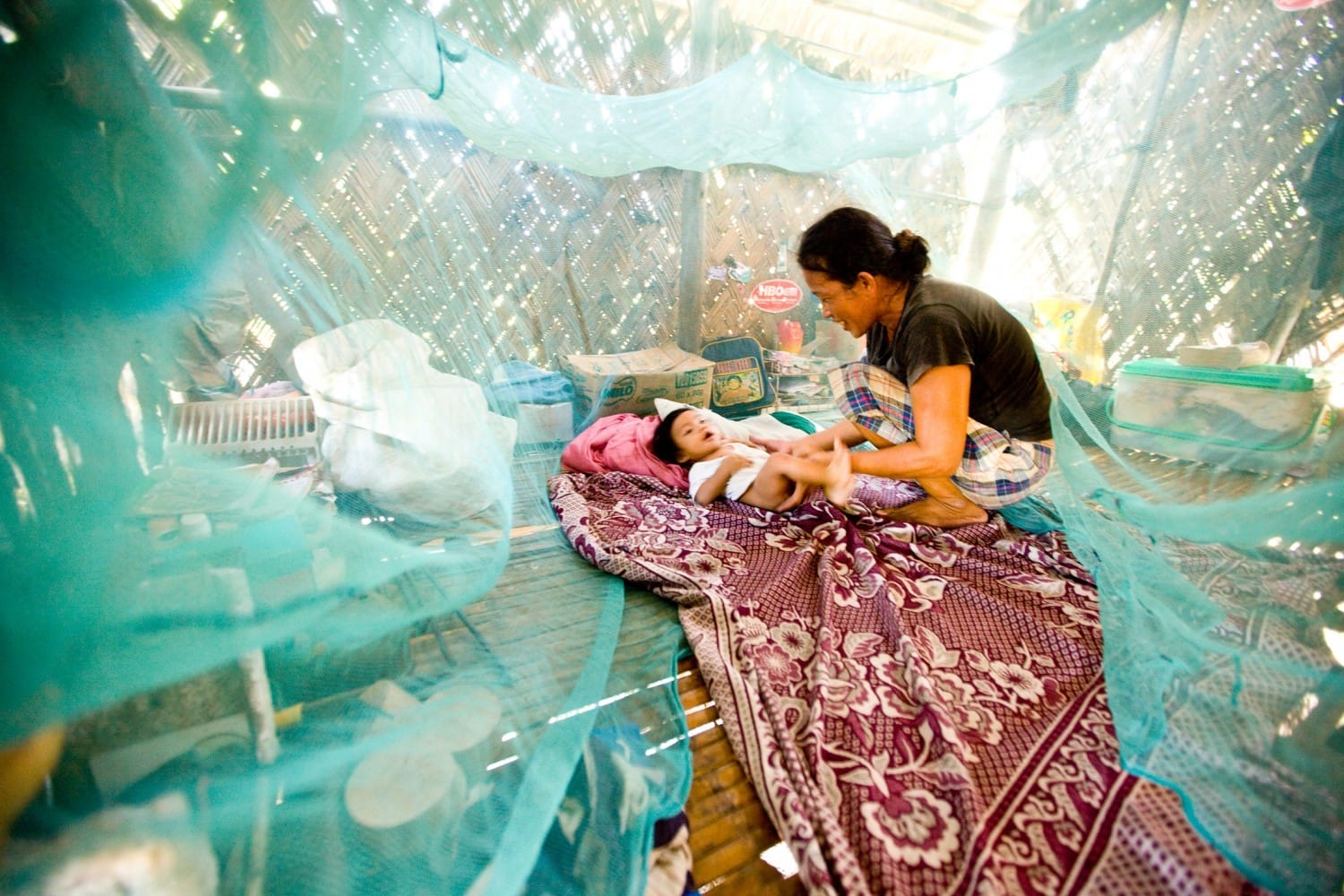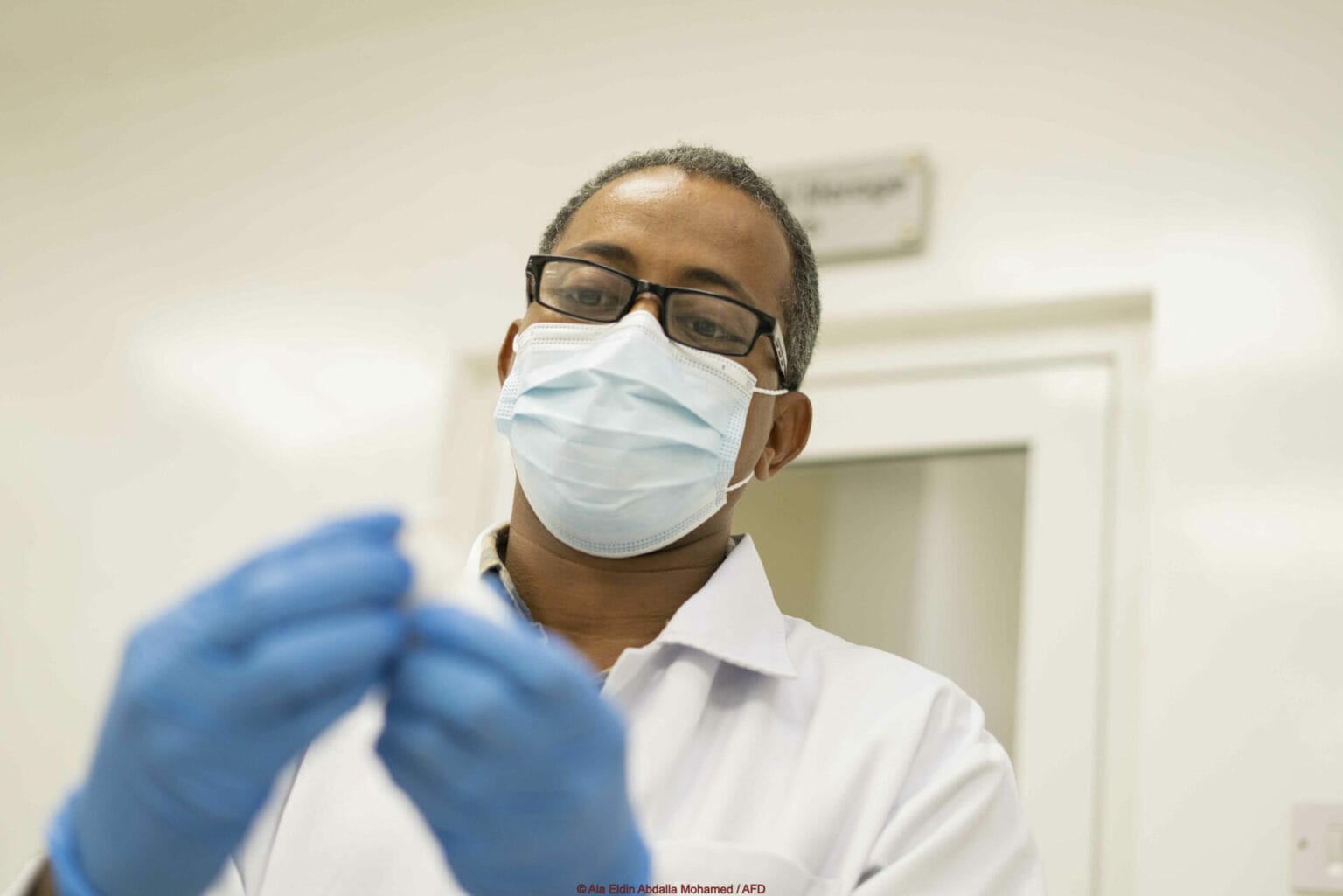VIH/AIDS
HIV is the world’s largest leading cause of early death among wowen aged to 15 to 49.

L’Initiative contributes to the long-standing combat to end three major pandemics—tuberculosis, AIDS, and malaria—by providing support for Global Fund grants. We place increasing emphasis on the coinfections and comorbidities associated with these diseases.
Since 2011, L’Initiative has helped its partners to prepare, implement, monitor, and evaluate funding granted by the Global Fund to Fight AIDS, Tuberculosis and Malaria. Our work also increasingly covers other issues that extend beyond these three major pandemics, as well as coinfection and comorbidity risks, including cancer, diabetes, and viral hepatitis.
Fighting pandemics by strengthening the health system
HPV cancers
Human papillomaviruses (HPV) are among the most widespread sexually transmitted infections

According to UNAIDS, one person dies as a result of AIDS every minute around the world. The prevalence of HIV among children, and especially among young girls, is compounded by persistent challenges in accessing healthcare, particularly in sub-Saharan Africa. These inequalities underline the urgent need for a collaborative and coordinated response. In response to this situation, L’Initiative prioritizes pediatric HIV, focuses on fighting gender inequality, and devotes attention to protecting marginalized groups, especially when they are criminalized. We facilitate access to screening, in particular through community stakeholders, and support advocacy to promote universal access to sexual and reproductive health and rights (SRHR).
“Today, fighting HIV is a political combat for rights to quality services.”

The fact that tuberculosis (TB) persists around the world is a cruel paradox. Effective treatments for the disease exist, and yet over 1.6 million people die of tuberculosis every year worldwide. The current situation is even more challenging since the COVID-19 pandemic eroded years of global progress in fighting tuberculosis. The number of deaths from TB has risen for the first time in a decade, further undermining the goal of eliminating the disease.
L’Initiative has set itself three priorities to step up the fight against tuberculosis:

In 2021, malaria claimed over 619,000 lives worldwide. The pandemic persists and progress is hindered by other major challenges, including stalled investments, a growing resistance to insecticides and antimalarial drugs, and climate change.

Human papillomaviruses (HPV) are among the most widespread sexually transmitted infections: around 70% to 80% of sexually active people will be affected by one of the 200 types of papillomaviruses. Certain strains of HPV develop into precancerous lesions or cancers, in particular cervical cancer. This form of cancer can be cured when detected early enough and treated appropriately. And yet, cervical cancer causes deaths among women living with HIV, who are six times more likely to develop cervical cancer than HIV-negative women. L’Initiative has, therefore, broadened its interventions to include the prevention of cervical cancer, with a particular focus on Africa, which accounts for the vast majority of cases worldwide.

L’Initiative remains alert and responsive to emerging epidemics, such as the COVID-19 crisis. This disease not only affects people’s health, but also increases their risk of developing other pathologies, placing additional strain on already fragile health systems. L’Initiative, therefore, adapted its activities to assist its field partners by supplying equipment (masks, hand sanitizer, etc.), and providing additional funding to reduce the impact of the COVID-19 pandemic on ongoing programs.
Finally, L’Initiative provided supplementary resources to support funding applications to the Global Fund to ensure that programs to fight AIDS, tuberculosis, and malaria could continue despite the compromised health context.